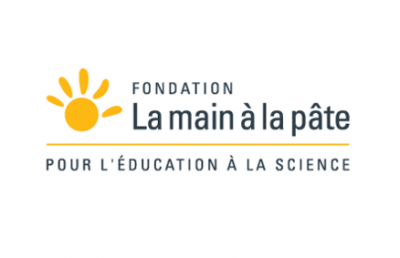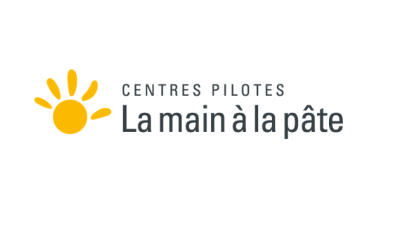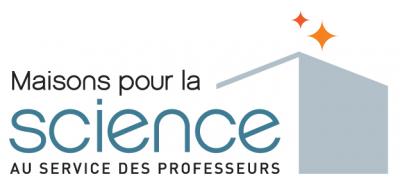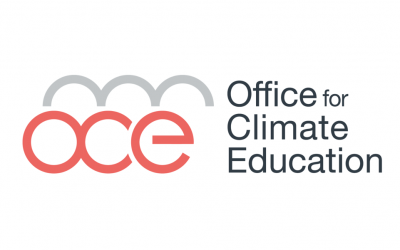Research programmes and think tanks
The Foundation regularly participates in national and international research programmes, think tanks and studies, which aim to contribute to the advancement of knowledge useful to education, and to the concrete translation of this knowledge into teaching practice.
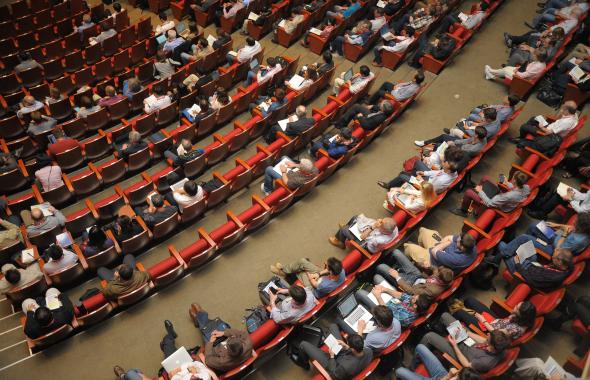
FORMSCIENCES
Training school teachers to teach science through the investigative approach: impact on teaching practices and students' skills.
The FORMSCIENCES project, funded by the French National Research Agency (ANR-13-APPR-0004), had one main objective : to design and implement an evaluation system capable of measuring the impact of teachers' professional development actions on their practices and on pupils' learning during the primary cycle. These actions aim to train teachers in pedagogical practices based on the investigative approach in scientific disciplines. There is a substantial body of literature analysing this pedagogical approach in science teaching. However, almost all the work is based on studies of a very small number of subjects or in very specific settings.
The FORMSCIENCES project, coordinated by PSE-Ecole d'Économie de Paris (Marc Gurgand) has made it possible to set up an evaluation system under ecological conditions (160 teachers trained in the project) by means of a randomised controlled experiment, coupled with a fine-grained qualitative observation approach. The evaluation tool used was the result of a cooperation between educational economists and experts in social experimentation, didactics, cognitive sciences, and professional development for teachers (the other partners were: André Tricot - ESPE of Toulouse - and Valérie Munier - ESPE of Montpellier).
What did La main à la pâte do in this project?
The project was based on the training activities carried out by the Maisons pour la science, linked to the Fondation La main à la pâte. In particular, the evaluation focused on a continuous professional development programme in science, lasting about 60 hours, aimed at primary school teachers.
The results of the project
The project highlighted the need to structure training more closely with a view to transposing the skills learned in training into classroom practice. In particular, the following emerged
- the need to make explicit the aspects of the scientific approach that teachers experience during training,
- the need for more precise indications (or even guided scenarios) for putting into practice,
- the need for more follow-up after the training.
Another benefit of the project was that it enabled the Foundation to make progress in its thinking on the need for agile forms of evaluation, capable of providing accurate feedback to quickly adapt the least effective aspects of training.
> For an analysis of the results: Gurgand, M. (2018). School experimentation: from the laboratory to the classroom. Collège de France, Colloquium "The role of experimentation in education", 1 February.
Educating critical thinking, a project funded by the Agence Nationale de la Recherche
Critical thinking education : its theoretical basis and the experimental study of its impact on students.
Although the development of critical thinking skills is a crucial issue for education - and for our society - there is still a lot of uncertainty about the most effective strategies to achieve this result. Moreover, very few assessment tools have been developed for a young audience. To address these needs, the Fondation La main à la pâte has been collaborating on a research project funded by the Agence Nationale de la Recherche (ANR) since January 2019: "Educating the critical mind" - EEC (see the June 2020 report).
The aim of this project is to identify effective strategies for the development of critical thinking and tools for its evaluation, in order to be able to measure progress in the acquisition of new skills and attitudes.
What did La main à la pâte do in this project?
The La main à la pâte team produced classroom sessions and accompanied teachers in their implementation, and used evaluations to measure the impact of the activities carried out on the development of students' critical thinking skills. Teachers particularly appreciated the integrated and innovative nature of the proposed research activities. Here are some of the comments:
"A course that integrates teaching critical thinking with teaching the scientific method and scientific knowledge."
Critical thinking is an important issue in today's world, and it is important to know what information to trust. Most teachers are aware of these issues and want to be able to pass them on to their students. They were therefore curious to know how critical thinking could be integrated into existing courses. In particular, there is a strong interest on the part of teachers in making science lessons in which a scientific approach is used, in which the pupils are actors and must have a critical view of their results. "This allows for a mixture of knowledge and reasoning", explains one of the teachers. After their participation in the study, some teachers are already thinking of using the same session structure in other subjects such as French or history.
"A slightly different way of doing science in the classroom."
When participating in this research project, several teachers were looking for new ways to do science. Following the sessions, one teacher noted that students became more curious about science : they asked more questions and were more invested in their work.
"A slightly different way of doing science in the classroom."
Most of the teachers who participated in the project were already familiar with La main à la pâte. Participating in this project was also a way for them to discover new science resources and new media, especially the digital tablets on which the children conducted their investigations in small groups. Several teachers said that they liked the fact that they could use the tablets to carry out the activities, something they had rarely been able to do before participating in the research and which they would like to use again in the future. There were also videos with interviews of scientists working on the subject. Most of the teachers indicated that they were already thinking of using the proposed resources again the following year, as the pupils enjoyed the sessions and showed curiosity and interest in them.
"Work focused on curriculum content so no time wasted!"
The sessions carried out in the classes are an integral part of the cycle 3 science programme. Thus, as one teacher testified, "these activities correspond to objectives that overlap with ours, so there is no "lost" time! In addition, the sessions allow us to work on skills that are useful in science but also in everyday life, which meets the various cross-curricular objectives of the programmes, in particular the skills and knowledge base.
> See the Research page of the La main à la pâte - CQFD website for more details on the contribution of the Fondation La main à la pâte to the elaboration of a report on critical thinking education, as well as the detailed description of a field experiment aiming at evaluating the impact of a critical thinking education action conceived by the Foundation's team.
A scientific interest group at the Inspé Paris
The Fondation La main à la pâte is an associate member of the Scientific Interest Group (GIS) "Research Network in Education, Teaching and Training at the Inspé Paris" (Rreefor-Inspé) created in September 2020.
Six themes structure this GIS:
1. Nature and circulation of disciplinary knowledge in the classroom and in training
2. Training, practices, teaching and educational specialities
3. Globalization, innovations, professional and curricular developments
4. School audiences, socialisation and learning
5. Teaching, training and learning with and through digital technology
6. Cognition, brain and learning.
The actions undertaken by the GIS are open to all the teams and laboratories of its members or associate members who are concerned by its activities.
Members : Sorbonne University, the National Centre for Scientific Research, the University of Paris, the University of Panthéon Sorbonne, the University of Sorbonne Nouvelle, the National Institute of Oriental Languages and Civilisations, the National Museum of Natural History, the Paris Education Authority
Associate members : The Réseau Canopé and the Fondation La main à la pâte.
Educating for critical thinking: participation in an OECD think tank
In 2015-2016, the Fondation La main à la pâte participated in the project "Fostering Students' Creativity and Critical Thinking" launched by the OECD.
The objective : to develop and test a set of educational resources to foster students' critical thinking and creativity. 11 countries were brought together for this project. The results of their work are now available in a volume published by the OECD. This volume contains sequences of exemplary activities to educate for critical thinking and creativity. It also reports the results of studies conducted in different countries to evaluate the reception of tools for monitoring students' progress in the two dimensions: critical thinking and creativity.
What has La main à la pâte done in this project ?
La main à la pâte contributed to the first cycle of the project by carrying out educational interventions in primary schools in the cities of Nancy, Troyes and Nogent-sur-Oise. 364 pupils were involved in the project. She coordinated the local work, while the Laboratoire Adaptations Travail Individu (LATI, Université Paris Descartes) collected the data on creativity.
All the teachers involved in the project set up science sessions proposed by the Fondation La main à la pâte team, the pilot centres in Nancy, Troyes and Nogent-sur-Oise. The aim is to develop a scientific mindset and thus equip students with a critical mind. The teaching method adopted is that of investigation, with a strong emphasis on practical activities. The teachers were given a training session prior to the action in class.
A survey was conducted among the teachers (16 participated in the project, 10 answered the questionnaire). It showed their strong motivation for an education aimed at creativity and critical thinking. The majority of the teachers expressed confidence in the possibility of educating in these two dimensions and in an integrated way in any type of school content.
However, they were sceptical about the possibility of assessing creativity and critical thinking in an objective way, because of the workload that such an assessment might represent.
The Fondation La main à la pâte has used these results to produce turnkey critical thinking education activities that are easy to learn and implement and have been tested in several classrooms.
The activities are inserted into the disciplinary contents of the different cycles' programmes, so as not to represent an additional workload for the teacher.
Cognitive sciences and education, a GDRI
In 2015, a group of specialists in school learning, psychologists and educational scientists, joined together in the International Research Group (IRG) "Cognitive Neuroscience and School", funded by the CNRS.
The objective: to link the many disciplines of cognitive science with school learning, considered in their greatest diversity.
The operation resulted in the writing of a series of popularisation articles for teachers on school learning and the psychological variables that influence it. The articles are intended to be didactic and written in a simple manner. They are all accessible online, on the Synapses website - Building bridges between education and cognitive sciences.
What did La main à la pâte do in the framework of this project?
The Fondation La main à la pâte joined the project to bring its knowledge of the educational environment to facilitate the dialogue between the latter and the world of psychological research. It disseminated the questionnaire through its networks and contributed to the analysis of the answers, in order to extract practical indications on the themes to be treated as a priority. The Foundation also participated in the editing of the contributions and still participates, via the Synapses website, in their dissemination.
